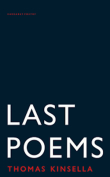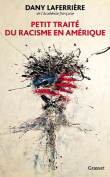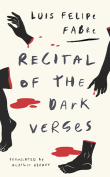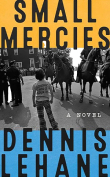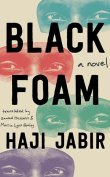Shy: A Novel by Max Porter
 Minneapolis. Graywolf. 2023. 136 pages.
Minneapolis. Graywolf. 2023. 136 pages.
Max Porter burst on the literary scene in 2015 with his debut novel, Grief Is the Thing with Feathers, which went on to win the Dylan Thomas Prize. In April of this year, his fourth novel—Shy—was published in the UK. It is similar in its brevity and unusual form to Porter’s previous work, living somewhere between concrete poetry and prose. Set in 1995, it follows the sixteen-year-old Shy, who, after an impressive array of violent excesses—“he’s sprayed, snorted, smoked, sworn, stolen, cut, punched”—finds himself at a home for children with behavioral problems, appropriately named Last Chance.
The novel opens one night when Shy begins to make his way out of his room, headed for the school pond with a rock-filled rucksack to weigh him down. Much of the novel then unfolds as a stream of memories and dreams, told by an omniscient narrator, interlaced with a variety of voices, which the author keeps in distinct fonts. The physical form of his text is generally less daring than that of Porter’s second novel, Lenny, but still includes a handful of pages that are little more than word clouds.
Porter’s books are as short as they are complex. They ask the reader to engage with the text and struggle to form a whole from the individual voices and forms the author provides. In Shy, some of the more adventurous voices include outtakes from a TV documentary on the school, filmed during Shy’s stay there, two dead badgers, and Eve, a girl that had lived in Shy’s room thirty years before him. At times, some of these voices meet to transform his otherwise coherent recollection into a feverish dream: “The badgers show Shy himself, asleep in his room, watched by another, . . . waking up as a girl called Eve. . . . Shy feels at home inside her head.”
Shy is a serious and ambitious novel, not only in style but also in content. Porter shows himself unwaveringly empathetic with his protagonist, who often comes to regret, but seldom to understand, his own actions. Whether despite or because of this leniency, the reader might struggle to find the same kind of emotional proximity that Porter achieved with Grief Is the Thing with Feathers. We never truly understand the “why” of Shy’s outbursts yet meet an author who seems to forgive his every transgression.
Porter’s newest novel is dark without losing a continuous undercurrent of hope. And so, too, a hopeless ending remains hopeless only on its surface, with Shy’s rucksack, his “heavy bag of sorry,” finally emptied.
Felix Haas
Zurich










